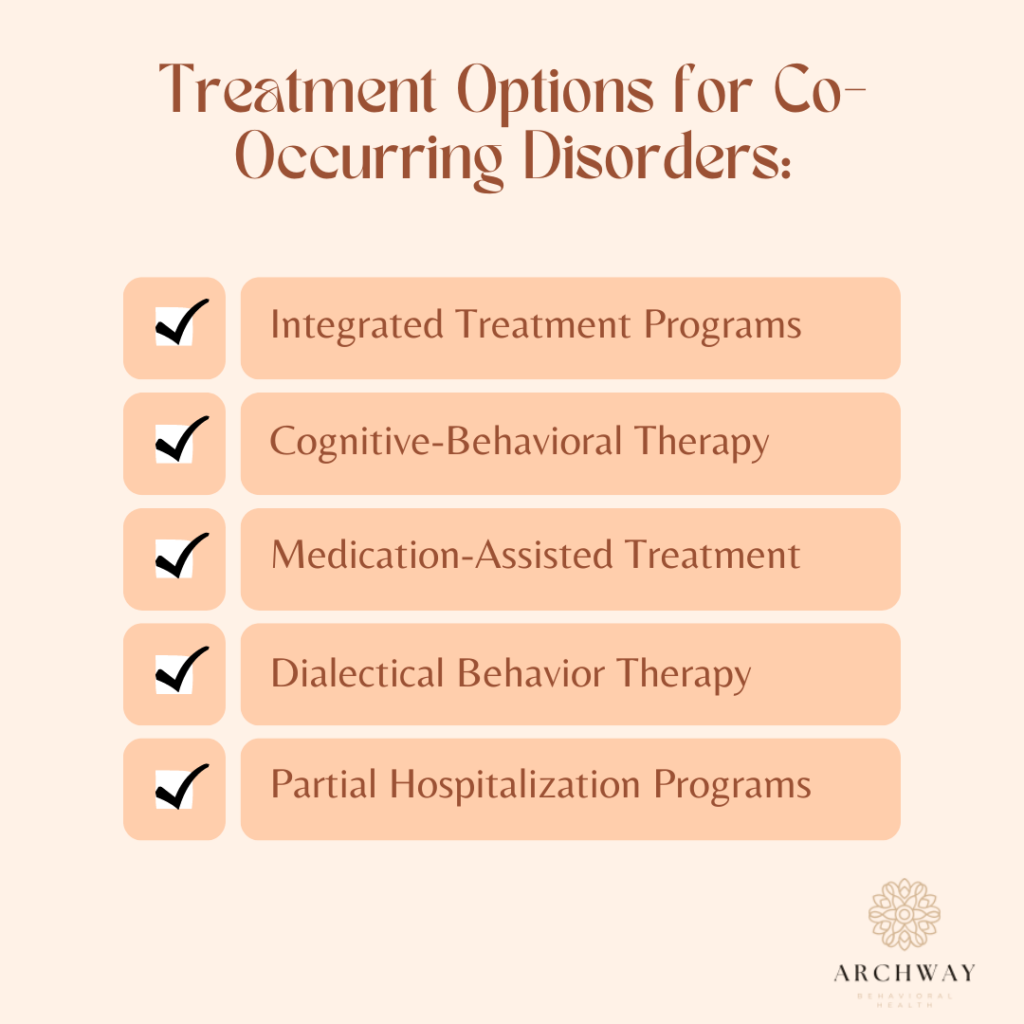Dealing with dependence is challenging, especially when it’s intertwined with mental health issues. Dependence and mental health disorders often occur together, creating a complex situation that requires specialized treatment. Understanding how these conditions interact and addressing them through comprehensive programs can make a significant difference in recovery.
Understanding Co-Occurring Disorders
Common mental health issues associated with dependence include depression, anxiety, and bipolar disorder. The relationship between the two can be intricate: dependence may worsen mental health symptoms, and mental health issues can lead to substance abuse as a form of self-medication.
For instance, someone dealing with depression might use dependence to numb their emotional pain, while the dependence could exacerbate their mental health problems. This cycle makes recovery more complicated, requiring a dual approach to treatment.
Why Addressing Co-Occurring Disorders is Essential
Ignoring either the dependence or the mental health issue leads to incomplete recovery. Studies have shown that individuals with co-occurring disorders who receive integrated treatment have higher success rates and a lower risk of relapse compared to those who receive treatment for only one condition. By addressing both disorders, individuals have a better chance of achieving long-term sobriety and improving their overall quality of life.
The Vicious Cycle of Dependence and Mental Health
Dependence and mental health disorders can create a vicious cycle. Individuals may turn to dependence to self-medicate for untreated mental health issues. For example, someone with depression might use dependence to experience temporary relief from emotional pain. However, the use of dependence often leads to chemical changes in the brain, exacerbating mental health symptoms over time. The worsening mental health conditions may then fuel further drug use, trapping the individual in a cycle that is difficult to break.
Comprehensive Dependence Treatment Programs
Effective treatment for dependence, especially when combined with mental health issues, involves a holistic approach. Dependence treatment programs need to address both the substance abuse and the mental health aspects simultaneously. Here’s a closer look at some of the key programs designed to tackle these challenges:
- Partial Hospitalization Program (PHP)
A Partial Hospitalization Program offers an intensive level of care, but with the flexibility of returning home in the evenings. This program is beneficial for individuals who need a structured environment but do not require 24-hour supervision. PHP is particularly useful for those dealing with severe dependence and mental health issues, providing a bridge between inpatient care and outpatient treatment.
- Intensive Outpatient Program (IOP)
IOP offers a structured treatment schedule with several therapy sessions per week. This program is ideal for those who can manage their daily lives but still need substantial support to address their dependence and mental health issues.
The Importance of Integrated Treatment
For people struggling with both dependence and mental health disorders, an integrated treatment approach is crucial. This means addressing both conditions simultaneously rather than treating them separately. Integrated treatment helps prevent one issue from worsening the other and provides a more cohesive plan for recovery.
Treatment programs like PHP and IOP are designed to provide this integrated approach. They include therapy sessions, counseling, and medication management tailored to address both dependence and mental health conditions.
To effectively address both dependence and co-occurring mental health disorders, integrated treatment is crucial. This approach involves treating both conditions simultaneously in a coordinated manner, ensuring that neither issue is neglected. Without proper care for mental health, a person is more likely to relapse into substance use. Similarly, if dependence is left untreated, mental health symptoms may spiral out of control.
Treatment Options for Co-Occurring Disorders:
- Substance Abuse Treatment: A combination of therapies, such as cognitive-behavioral therapy (CBT), dialectical behavior therapy (DBT), and medication-assisted treatment (MAT), can help manage the symptoms of dependence and improve coping strategies.
- Mental Health Therapy: Addressing the underlying mental health issues through counseling, psychotherapy, and medication can improve emotional regulation and provide tools for long-term recovery. Therapies like acceptance and commitment therapy (ACT) can be particularly useful in addressing both substance use and mental health challenges.
- Partial Hospitalization Programs (PHP): For individuals with severe co-occurring disorders, a partial hospitalization program can offer intensive, structured support. These programs allow patients to receive comprehensive care while maintaining some level of independence. PHPs often combine therapy, medical treatment, and skills training to address both dependence and mental health issues.
Tailoring Treatment to Individual Needs
No two individuals are the same, and neither are their struggles with dependence and mental health issues. Effective treatment must be personalized to fit the unique needs of each person. Factors such as the severity of the dependence, the specific mental health condition, and individual circumstances all play a role in determining the best course of action.
Dependence treatment programs often start with an assessment to understand the individual’s needs fully. This plan might include a combination of therapies, support groups, and lifestyle changes designed to address both the dependence and the co-occurring mental health disorder.
Moving Forward: The Path to Recovery
Recovery from dependence and co-occurring mental health disorders is a journey that requires dedication, support, and a comprehensive approach. It’s important for individuals to seek out programs that offer integrated care and cater to their specific needs.
Support doesn’t end with treatment. Long-term recovery involves ongoing care, including continued therapy, support groups, and lifestyle adjustments.
Archway Behavioral Health, located in Boca Raton, Florida, provides compassionate and individualized mental health and dependence treatment. They offer various evidence-based therapies like Cognitive-Behavioral Therapy (CBT), Dialectical Behavior Therapy (DBT), and Eye Movement Desensitization and Reprocessing (EMDR). Their services include 1-on-1 therapy, group therapy, and intensive treatment options like Partial Hospitalization Programs (PHP) and Intensive Outpatient Programs (IOP). Archway focuses on creating personalized treatment plans to help clients on their journey to mental wellness. For more details, call us at (888) 488-4103.
Conclusion
Addressing dependence and mental health disorders together is essential for effective recovery. Through comprehensive mental health treatment programs like Partial Hospitalization Programs and Intensive Outpatient Programs, individuals can receive the integrated care needed to tackle both issues. By personalizing treatment and focusing on the whole person, rather than just the dependence or the mental health condition, we can better support individuals on their journey to recovery.
Trying to improve yourself is hard, but with the right support and treatment, overcoming the challenges of co-occurring disorders is not only possible but also within reach.
FAQs on Dependence and Mental Health
What are some common mental health conditions that often co-occur with dependence?
Some common mental health conditions that often co-occur with dependence include:
- Depression
- Anxiety
- Post-traumatic stress disorder (PTSD)
- Bipolar disorder
- Schizophrenia
How can mental health conditions contribute to dependence?
Mental health conditions can increase the risk of substance abuse as a way of self-medicating or coping with symptoms.
How can dependence worsen mental health conditions?
Dependence can worsen existing mental health conditions or lead to the development of new ones.
How can family members support individuals with co-occurring disorders?
Family members can play a crucial role in supporting individuals with co-occurring disorders by providing emotional support, encouragement, and understanding. Family therapy can also be helpful in addressing family dynamics and improving communication.



